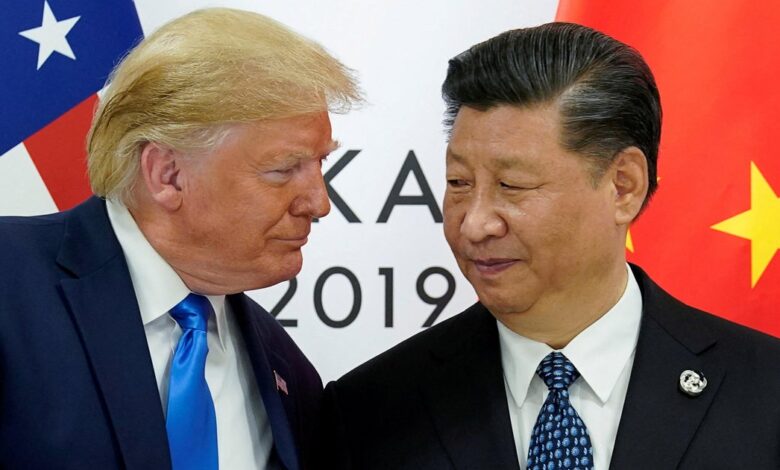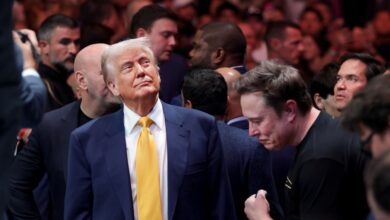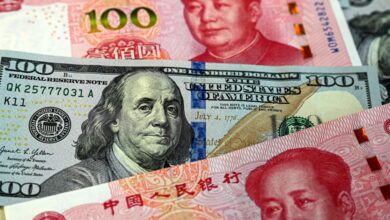China vows to fight Trump’s tariff war “to the end” as it blasts U.S. “unilateral bullying”

China Pushes Back Against U.S. Tariff Threats
In response to President Trump’s recent threat of an additional 50% tariff on Chinese imports, China has vowed to “fight to the end” and take countermeasures to protect its interests. The Chinese Commerce Ministry denounced the U.S.’s imposition of what they deem as “reciprocal tariffs” as groundless and labeled it as unilateral bullying.
The escalating trade tensions between the two economic powerhouses have raised concerns globally, with fears of a detrimental trade war looming. Stock markets worldwide have been volatile, and economists warn of the increased likelihood of a global recession if the situation worsens.
President Trump’s latest threat came after China announced retaliatory measures against U.S. tariffs imposed last week. If implemented, the new tariffs would bring the total U.S. tariffs on Chinese goods to a staggering 104%. This move could not only raise prices for American consumers but also incentivize China to seek deeper trade relationships with other partners, notably the European Union.
European Union Commission President Ursula von der Leyen has called for negotiations with China to address the challenges posed by the U.S. tariffs. During a phone call with Chinese Prime Minister Li Qiang, Von der Leyen emphasized the need for a reformed trading system based on fairness and a level playing field.
Amidst the uncertainty, the people of Beijing remain steadfast in their belief in China’s resilience. Despite the ever-changing rhetoric from President Trump, many express confidence in their country’s ability to weather the storm. China still has various options to retaliate against the U.S., including suspending cooperation on combating fentanyl and targeting U.S. trade in services within China.
The trade relationship between the U.S. and China is significant, with billions of dollars in goods exchanged annually. The ongoing trade dispute has not only economic implications but also political repercussions that could shape the future of global trade dynamics.
As the standoff between the two economic giants continues, the world watches anxiously to see how the situation unfolds and the potential impact it may have on the global economy.





